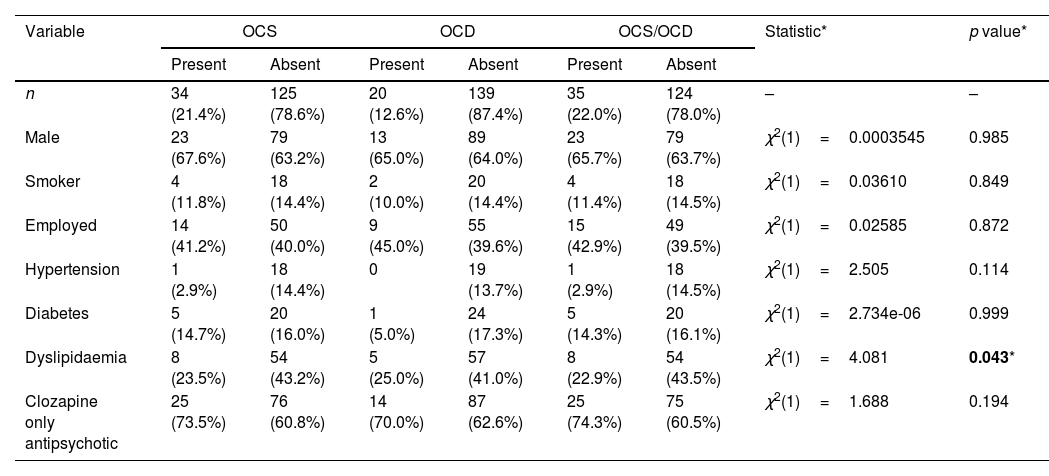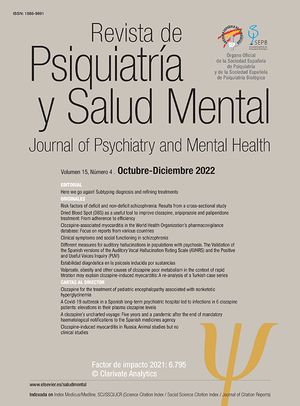Obsessive–compulsive symptoms (OCS) and obsessive–compulsive disorder (OCD) are commonly reported in patients with schizophrenia. Furthermore, the use of clozapine in treatment-resistant schizophrenia has been thought to induce or aggravate these disorders. To date, there is a paucity of research regarding the prevalence and associated factors. Hence, this study aims to report the prevalence of OCS and OCD, and examine potential risk factors, in clozapine-treated schizophrenia.
MethodsThis is a cross-sectional study conducted in the only tertiary hospital for psychiatric patients in Singapore. In total, 162 patients on a stable dose of clozapine were recruited for this study; 159 patients with a diagnosis of schizophrenia or schizoaffective disorder were included in the current analysis. Sociodemographic, clinical and treatment factors were analysed to identify factors associated with OCS and OCD.
ResultsThe prevalence of OCS and OCD is 21.4% and 12.6% respectively. Factors associated with OCS include younger age (OR:0.96, p=0.033) and younger age of onset of psychosis (OR:0.92, p=0.017). There were no significant factors associated with OCD. However, in an analysis of both OCS and/or OCD, factors associated include younger age (OR:0.96, p=0.027) and younger age of onset of psychosis (OR:0.91, p=0.016). Severity of psychotic illness and Clozapine dose were not associated with OCS or OCD in clozapine-treated schizophrenia.
Discussion & conclusionsOur results suggest a high prevalence of OCS and OCD in clozapine-treated schizophrenia which clinicians should routinely screen for. Further research is warranted to establish the link between the factors identified in this study and OCS/OCD in clozapine-treated schizophrenia.
Artículo
Comprando el artículo el PDF del mismo podrá ser descargado
Precio 19,34 €
Comprar ahora








